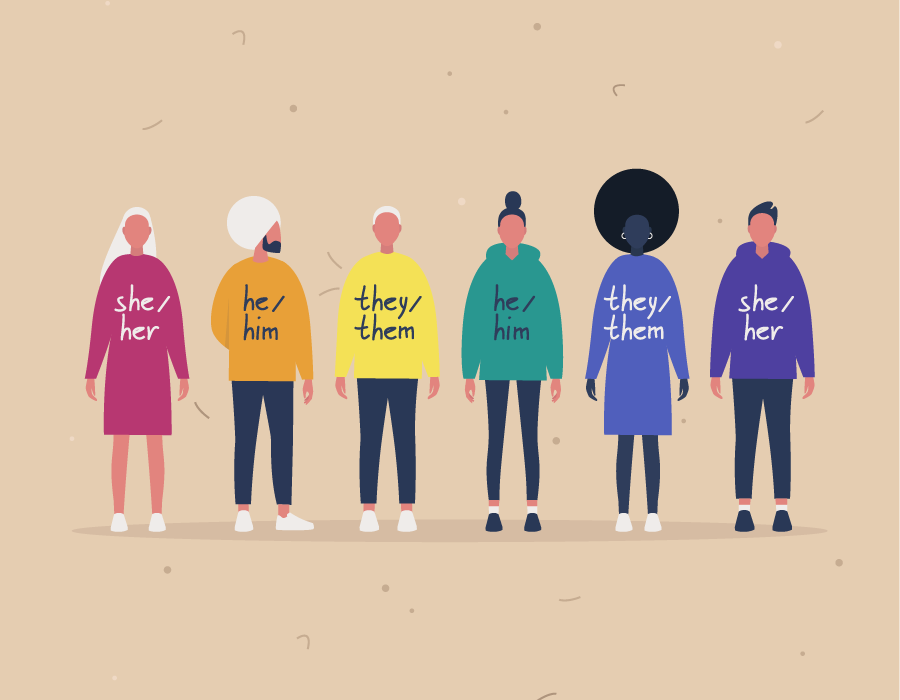The Power of Understanding: Examining Gender Roles in Modern Society
Related Articles: The Power of Understanding: Examining Gender Roles in Modern Society
Introduction
In this auspicious occasion, we are delighted to delve into the intriguing topic related to The Power of Understanding: Examining Gender Roles in Modern Society. Let’s weave interesting information and offer fresh perspectives to the readers.
Table of Content
The Power of Understanding: Examining Gender Roles in Modern Society

The dynamics between men and women have long been a subject of fascination and debate. This complex interplay, often referred to as "gender roles," shapes individual identities, societal expectations, and the very fabric of our relationships. Understanding these roles, their historical evolution, and their contemporary manifestations is crucial for fostering a more equitable and harmonious society.
A Historical Perspective
Throughout history, gender roles have been largely defined by societal norms and cultural traditions. These norms, often deeply ingrained, have assigned specific responsibilities, behaviors, and expectations to men and women.
-
Traditional Gender Roles: In many cultures, men were historically associated with strength, leadership, and the provision of material resources. Women, on the other hand, were often confined to domestic roles, focusing on childcare, household management, and nurturing. These roles, while rooted in practicality and survival, often limited opportunities and perpetuated inequalities.
-
The Rise of Feminism: The 20th century witnessed a significant shift in the perception of gender roles, largely fueled by the feminist movement. Women began challenging traditional expectations, demanding equal rights and opportunities in education, employment, and political participation. This movement challenged societal structures and paved the way for a more egalitarian understanding of gender.
Modern Gender Roles: A Spectrum of Possibilities
In the 21st century, gender roles have become more fluid and diverse. While traditional expectations persist in some communities, a growing number of individuals embrace a more inclusive and nuanced understanding of gender.
-
The Blurring of Lines: Modern societies see men actively participating in childcare and household duties, while women increasingly pursue careers in traditionally male-dominated fields. This blurring of traditional lines challenges the rigid boundaries of the past and opens up new possibilities for individual expression and fulfillment.
-
Gender Identity and Expression: The rise of LGBTQ+ rights has further expanded our understanding of gender. Individuals now have the freedom to identify and express their gender in ways that align with their personal experiences and identities. This diversity challenges the binary understanding of gender and promotes greater acceptance and inclusivity.
-
Challenges and Opportunities: While the evolution of gender roles has brought about positive changes, challenges remain. Gender stereotypes continue to influence perceptions, leading to discrimination and inequalities in areas such as pay, career advancement, and societal expectations. Addressing these challenges requires ongoing efforts to promote gender equality and dismantle harmful stereotypes.
The Importance of Understanding
Understanding the complexities of gender roles is essential for several reasons:
-
Promoting Equality: By recognizing and addressing the historical and societal influences that shape gender roles, we can work towards dismantling discriminatory practices and creating a more equitable society.
-
Building Stronger Relationships: Open communication and mutual understanding are crucial for healthy and fulfilling relationships. Recognizing and respecting individual needs and preferences, regardless of gender, fosters empathy and strengthens connections.
-
Fostering Individual Growth: Challenging rigid gender norms allows individuals to explore their own potential and live authentically. It empowers individuals to make choices that align with their values and aspirations, regardless of societal expectations.
Frequently Asked Questions:
Q: What are some common gender stereotypes?
A: Common stereotypes include:
- Men are strong and emotionless.
- Women are nurturing and passive.
- Men are good at math and science.
- Women are good at caring for children.
Q: How can I challenge gender stereotypes?
A: Challenging stereotypes requires conscious effort:
- Be aware of your own biases: Reflect on your own beliefs and assumptions about gender.
- Question traditional roles: Challenge the idea that certain activities or professions are exclusively for one gender.
- Support gender equality initiatives: Advocate for policies and programs that promote equality and dismantle discrimination.
- Speak up against gender-based jokes and comments: Call out harmful stereotypes whenever you encounter them.
Tips for Navigating Gender Roles:
- Embrace empathy and understanding: Listen to others’ perspectives and experiences, even if they differ from your own.
- Promote open communication: Encourage dialogue and respectful exchange of ideas about gender roles.
- Focus on individual strengths and talents: Value people for their unique qualities and abilities, regardless of gender.
- Be a role model for gender equality: Lead by example and demonstrate respect and inclusivity in your interactions with others.
Conclusion:
The journey of understanding gender roles is ongoing. It requires constant reflection, open dialogue, and a commitment to creating a society where individuals are valued for their unique qualities and contributions, regardless of gender. By embracing diversity, challenging stereotypes, and promoting equality, we can build a future where everyone has the opportunity to thrive and live authentically.








Closure
Thus, we hope this article has provided valuable insights into The Power of Understanding: Examining Gender Roles in Modern Society. We thank you for taking the time to read this article. See you in our next article!
